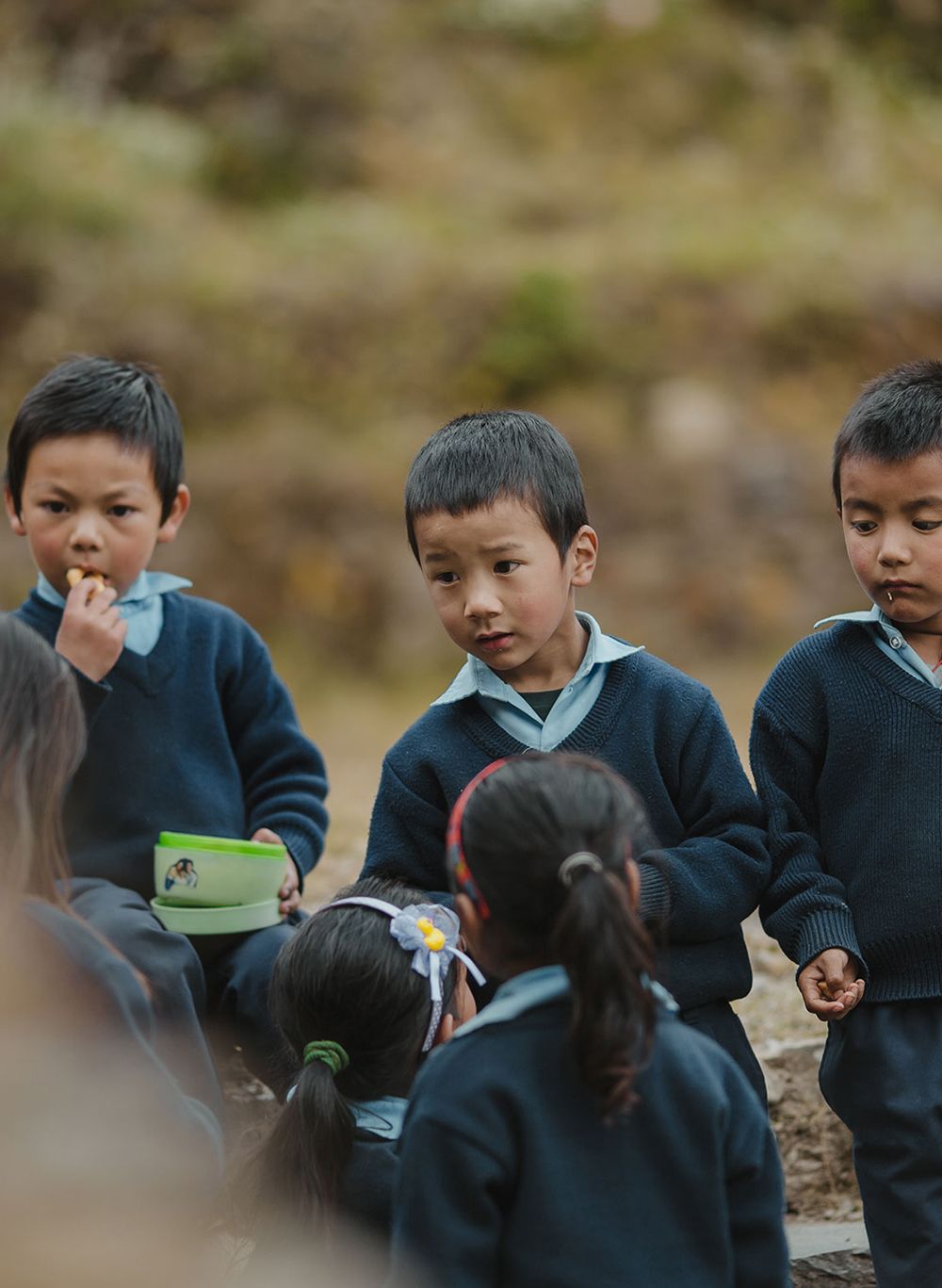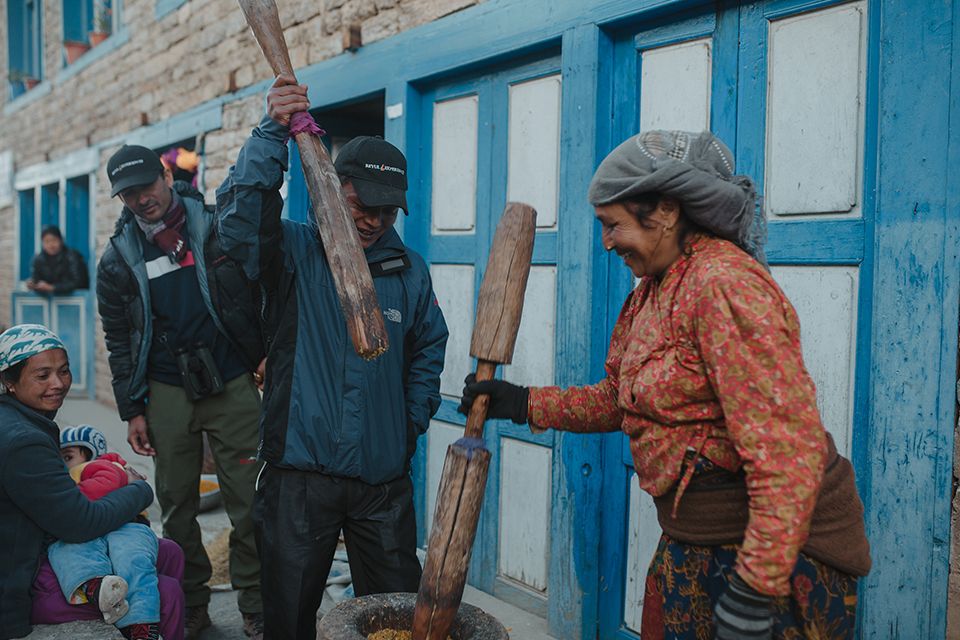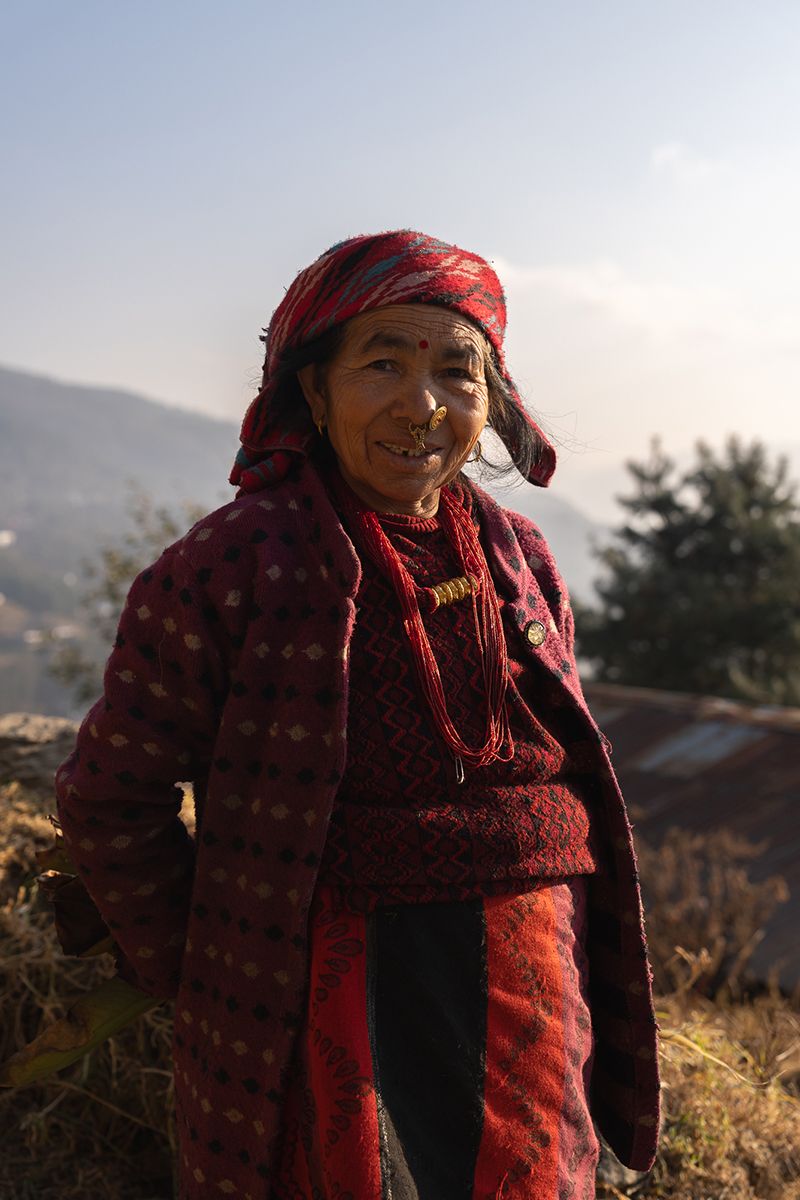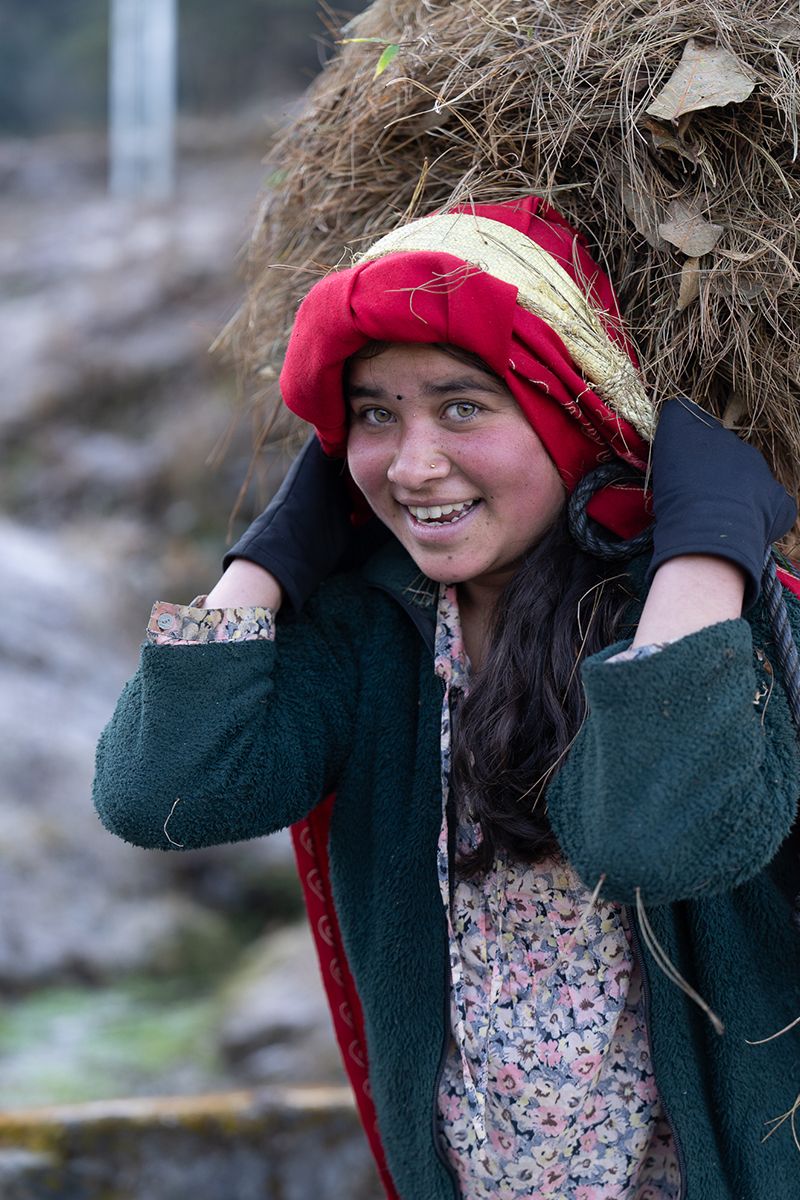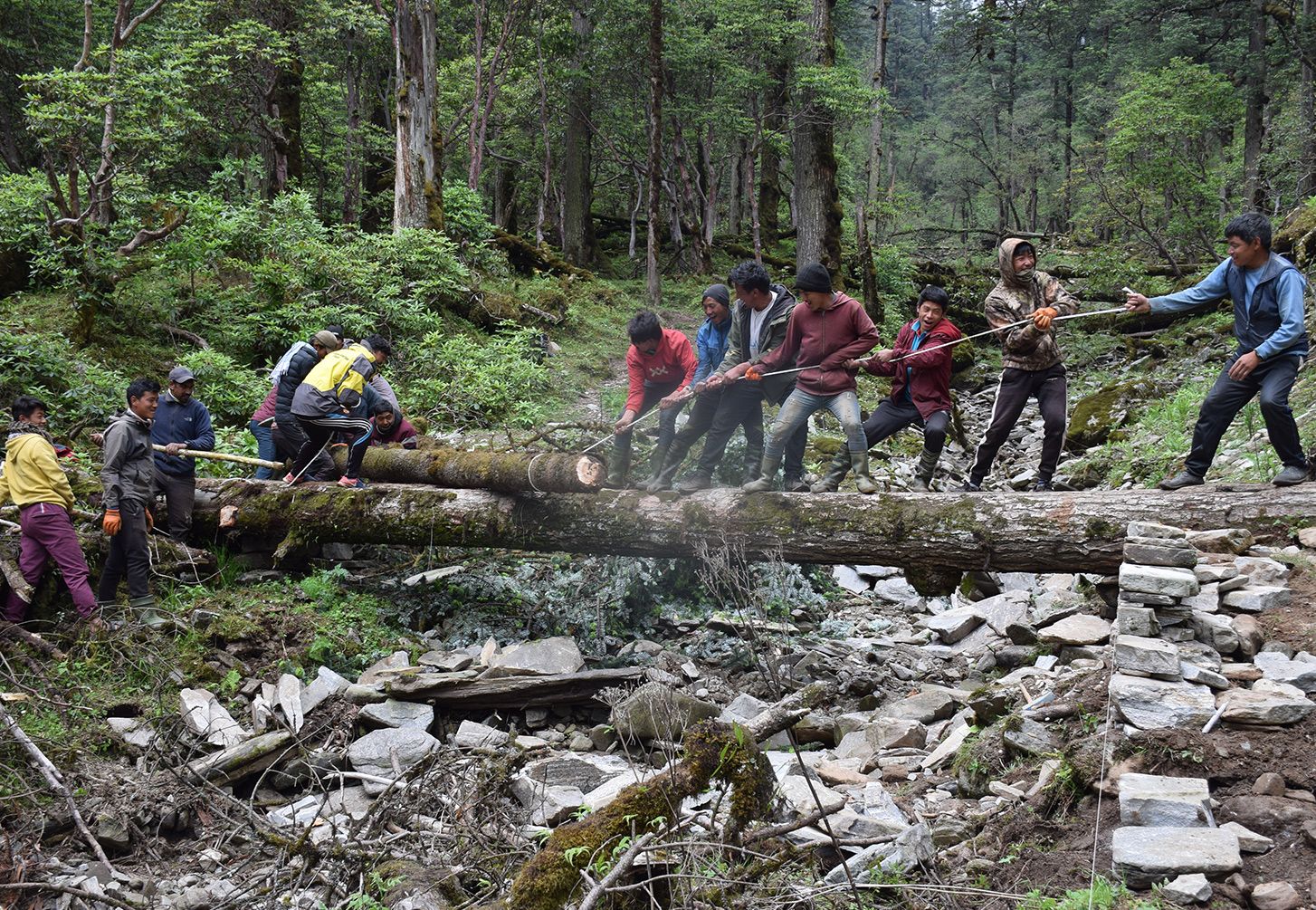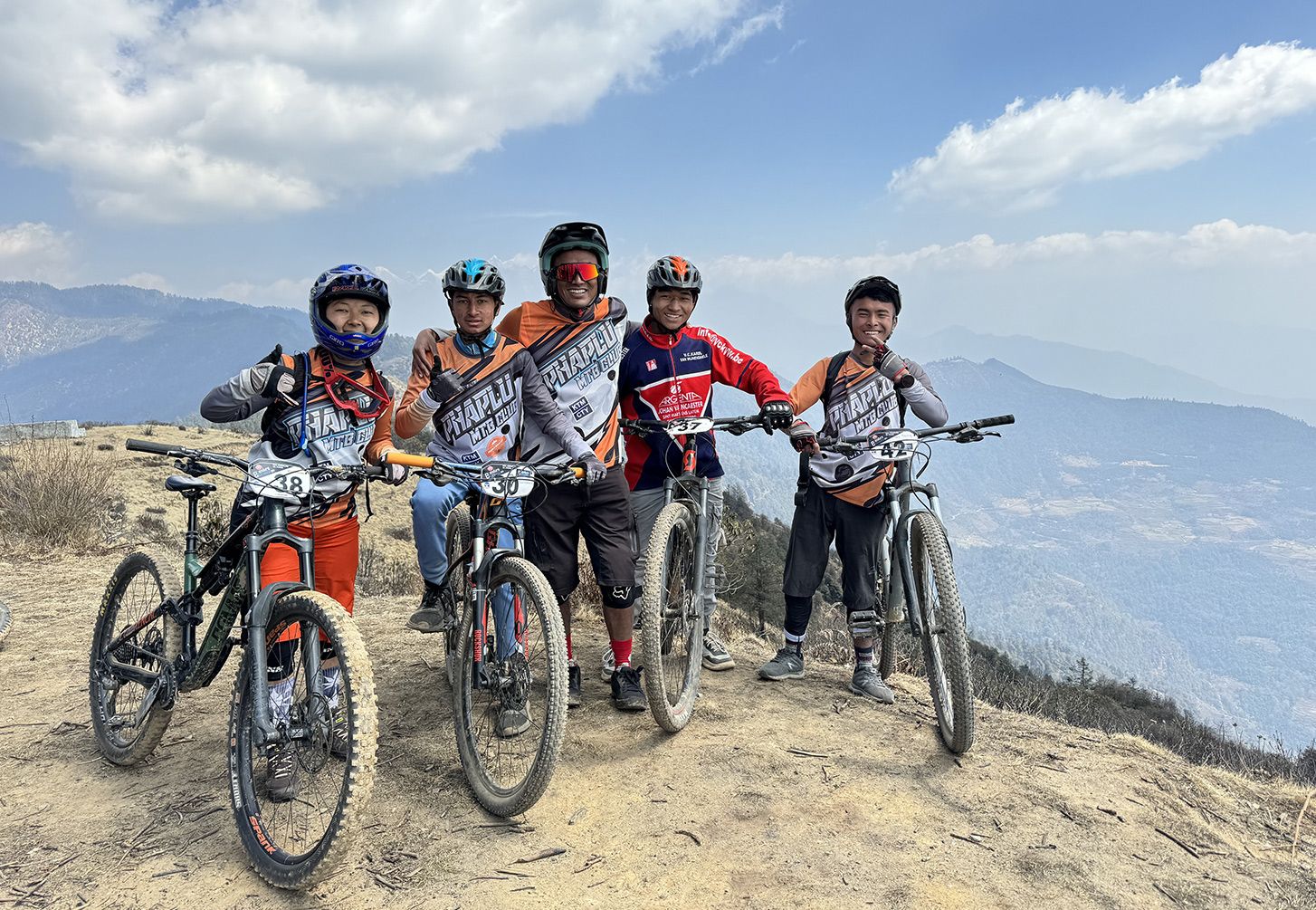Our Community
At The Happy House, community engagement is not a side project, it is the very foundation on which we exist. From healthcare and environmental conservation to youth development and cultural preservation, we work hand in hand with the community to protect traditions, foster opportunity, and build a healthier, more hopeful future.
Youth Development
We believe the wellbeing of the region depends on the energy and opportunities offered to its young people. Through Phaplu Mountain Bike Club, a non-profit organisation we founded, we are nurturing a culture of sports, wellbeing, and self-confidence among local youth. The club has created a positive alternative to migration and unemployment by offering young people access to mountain biking as a sport, a livelihood, and a source of pride.
Our work has led to the development of 17 world-class mountain biking trails in the Everest region. These trails, known as the Ratnange Trail Center, were built in collaboration with three community forest departments. They serve multiple purposes: curbing illegal logging by increasing community oversight, generating local jobs in trail maintenance and guiding, protecting forest wildlife, and attracting visitors who support homestays and small businesses. What began as a grassroots project has grown into a living example of how adventure tourism, conservation, and community wellbeing can be woven together.
Our work has led to the development of 17 world-class mountain biking trails in the Everest region. These trails, known as the Ratnange Trail Center, were built in collaboration with three community forest departments. They serve multiple purposes: curbing illegal logging by increasing community oversight, generating local jobs in trail maintenance and guiding, protecting forest wildlife, and attracting visitors who support homestays and small businesses. What began as a grassroots project has grown into a living example of how adventure tourism, conservation, and community wellbeing can be woven together.
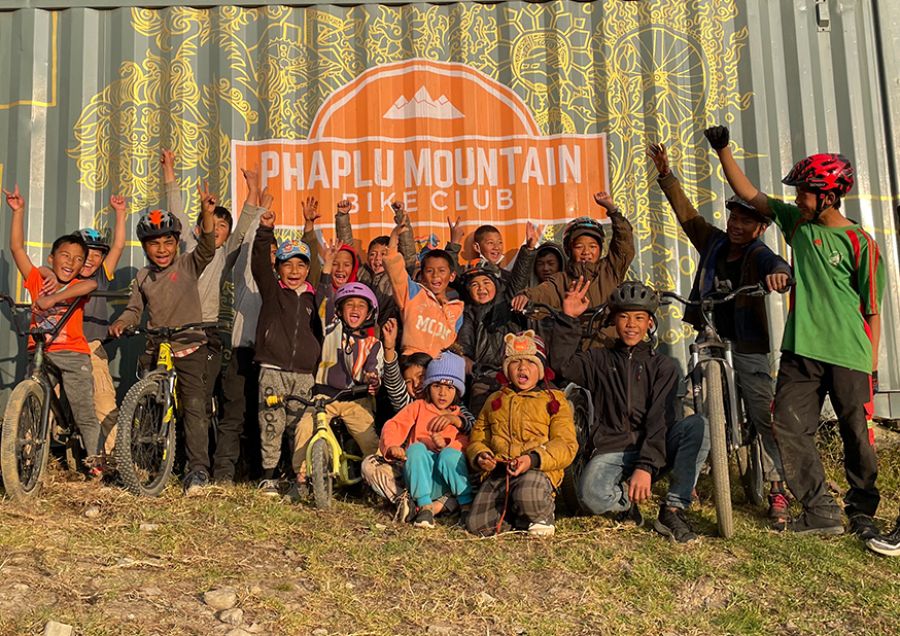
Arts, Crafts & Cultural Preservation
Beyond sport, we are deeply committed to protecting and revitalizing Himalayan cultural traditions. The launch of Beyul Carpets represents one of these efforts — an initiative to revive traditional carpet weaving, an art once central to the region but now endangered. By training and employing local women, Beyul Carpets provides dignified livelihoods while countering the growing trend of labor migration abroad. The work preserves craft knowledge and sustains cultural pride, ensuring these skills are not lost to future generations.
In addition, our partnership with the Himalayan Art Initiative has allowed us to create an Artist in Residence program at The Happy House and to introduce art curriculum into local schools. By providing platforms for artists from across the Himalaya, we hope to ensure their voices are heard, their traditions are celebrated, and their stories continue to inspire.
In addition, our partnership with the Himalayan Art Initiative has allowed us to create an Artist in Residence program at The Happy House and to introduce art curriculum into local schools. By providing platforms for artists from across the Himalaya, we hope to ensure their voices are heard, their traditions are celebrated, and their stories continue to inspire.
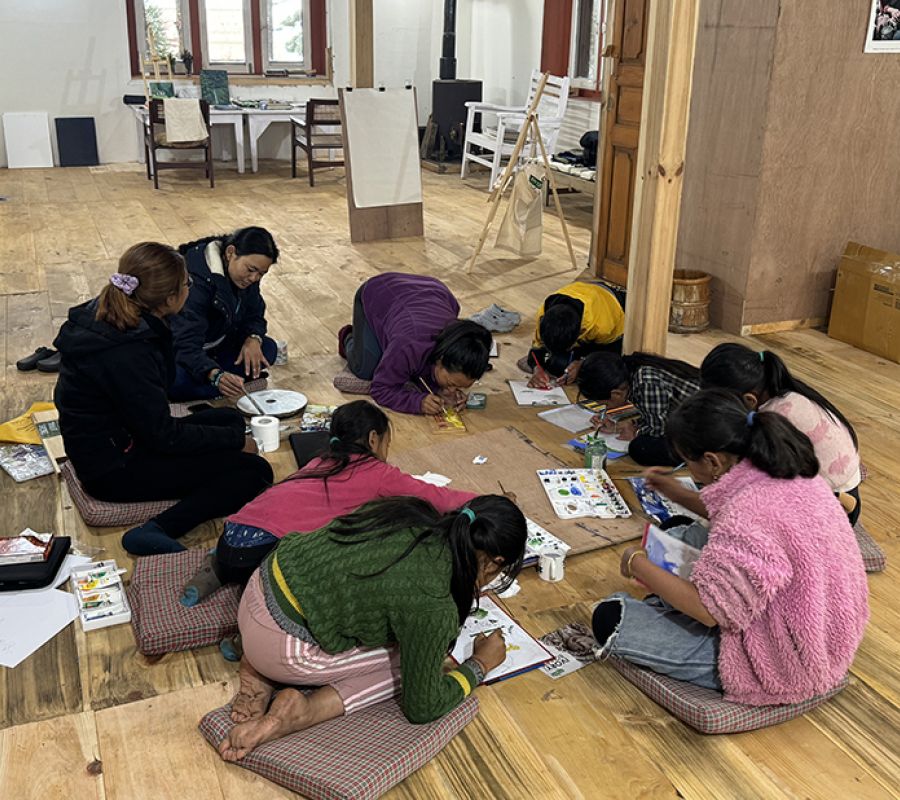
Healthcare & Household Wellbeing
One of our earliest commitments was to address indoor household air pollution, one of the leading causes of sickness and child mortality in the Himalayas. To date, we have supported the installation of over 85 efficient wood-burning stoves in family homes across the region. These stoves not only save lives by reducing exposure to harmful smoke but also reduce the amount of wood consumed, helping to conserve the forests. Alongside this, The Happy House regularly collaborates with visiting doctors and organisations to support Phaplu hospital and run mobile health camps making good healthcare accessible in even the most remote corners.
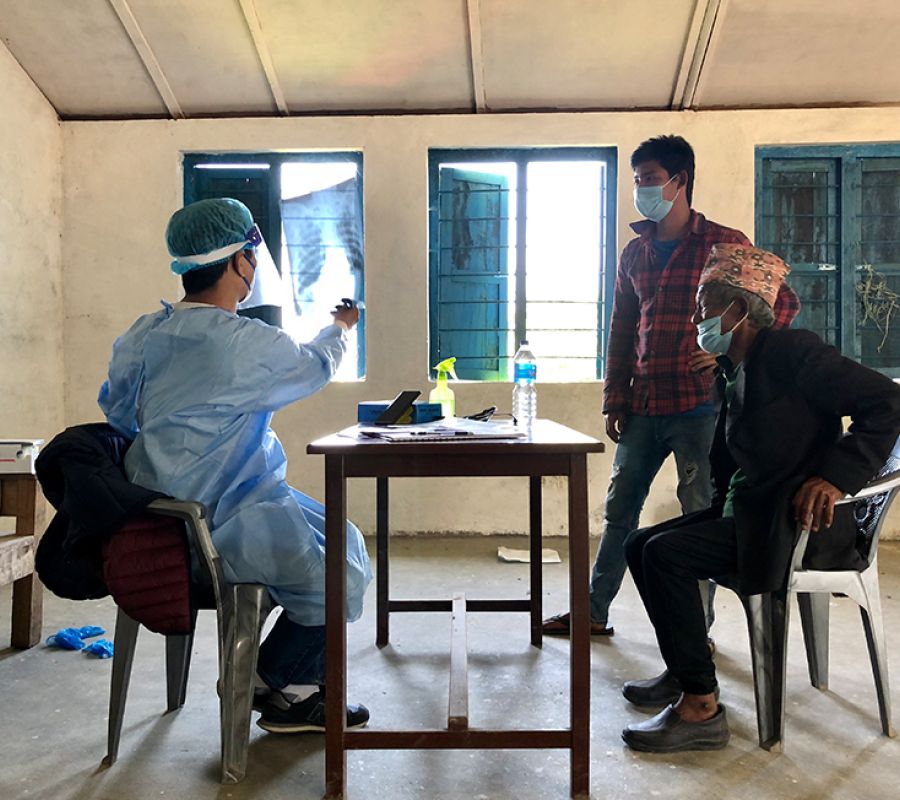
Growing Together
As part of our Growing Together movement, we have provided hospitality and F&B trainings to support local entrepreneurs across the region. In Phaplu, we have arranged for experienced hotel managers to conduct workshops for lodge owners, focusing on refining service standards, strengthening safety and hygiene practices, and preparing lodges to meet the expectations of modern travelers. Since many lodges and teahouses are run by women, the training also emphasized empowering local women entrepreneurs, offering them the tools and confidence to further grow in tourism and hospitality.
Our chef Mingmar has also led culinary trainings bringing together local lodge and homestay operators. Participants learned to prepare a mix of Sherpa, Nepali, and Western dishes while also focusing on hygiene, cleanliness, and service with key emphasis being placed on using local, organic produce to encourage sustainable practices and healthier meals. These initiatives reflect our belief in Maya Angelou’s words: “When you learn, teach. When you get, give.”
Our chef Mingmar has also led culinary trainings bringing together local lodge and homestay operators. Participants learned to prepare a mix of Sherpa, Nepali, and Western dishes while also focusing on hygiene, cleanliness, and service with key emphasis being placed on using local, organic produce to encourage sustainable practices and healthier meals. These initiatives reflect our belief in Maya Angelou’s words: “When you learn, teach. When you get, give.”
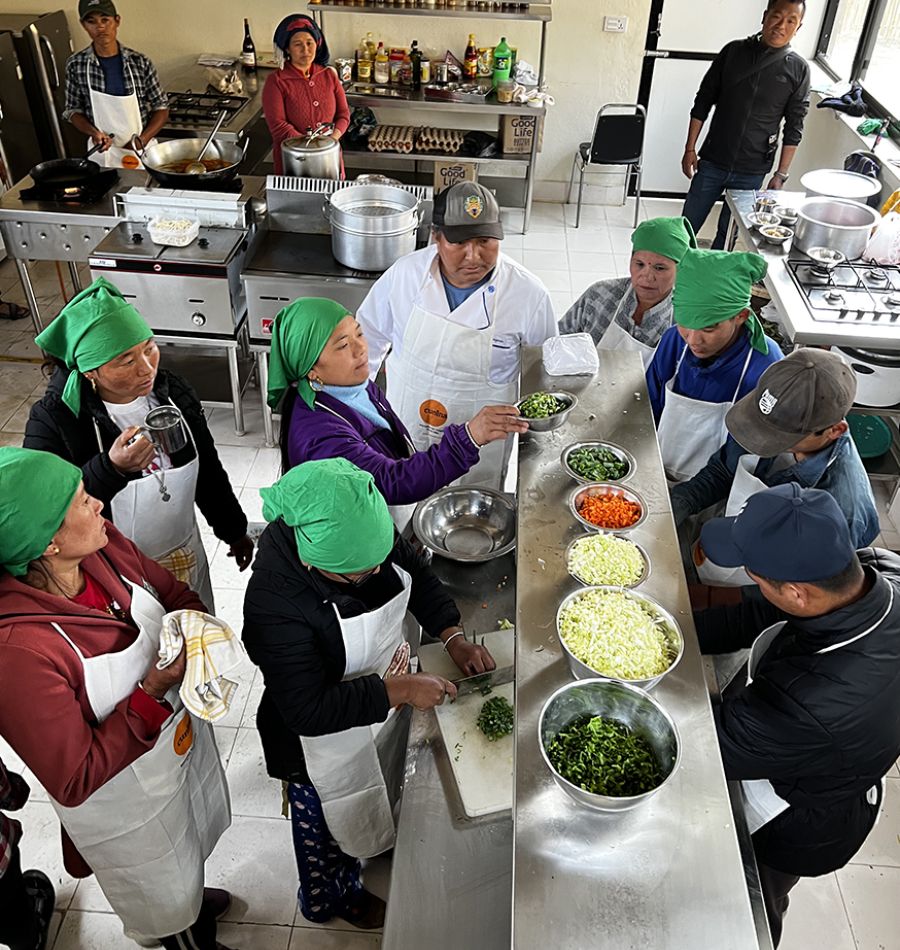
At The Happy House, we extend an invitation to our guests not only to enjoy the serenity of the Himalaya but to witness and,
if they choose, to participate in these efforts. For us, true hospitality is not measured only in comfort or beauty,
but in the way a place contributes to the life around it. This is the spirit of The Happy House: a home that belongs
as much to its community as it does to its guests.
if they choose, to participate in these efforts. For us, true hospitality is not measured only in comfort or beauty,
but in the way a place contributes to the life around it. This is the spirit of The Happy House: a home that belongs
as much to its community as it does to its guests.
